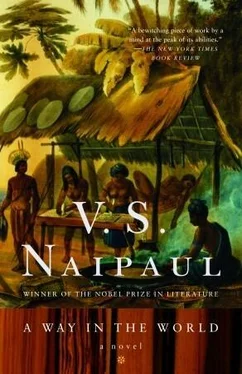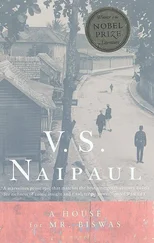Level says, “Our hate, General, our hate. It isn’t like the hate of other places.”
“The Spanish empire damaged us in that way. It kept us backward, gave us very little to do. It gave us as men no way of proving ourselves. It never made us believe in human achievement. It made us believe only in luck and birth and influence and theft and getting patents from the king. It made us cringe before authority and mock it at the same time. It made us believe that all men at bottom were worthless. Many of the stupid things I did in the early days were because of that. It was ten years before I understood that things were different in other countries.”
Level says, “At one time I used to think the jealousy you talk about was harmless, like the jealousy of a grocer for a man who comes and sets up a shop next door. After the revolution this jealousy turned to hate. We’ve all surrendered to this hatred. People won’t” stop now until they see the white bones of the enemy. I never thought it would happen. I thought people would be too frightened. I remember the early revolutionaries, Gual, España, in the late 1790s. They sent people to our estates and to others and tried to get us interested. They said they were going to have a republic and the flag was going to have four colours, for the different races. White, blue for the Negro, yellow for the mixed, red for the Indian. The four colours would also stand for the four aims of the republic. Liberty, equality, security, property. Property for the white, liberty for the Negro, equality for the mulatto, security for everybody. They were going to give everything to everybody. How were they going to do it? When you asked them they couldn’t answer. They hadn’t worked it out. They had thought only about the flag and the colours. Sometimes they got angry. ‘You’re an americano. You should be a proud man. How can you talk in this low way? Don’t you care about your country?’ I would say, ‘It’s wrong of you to put it like that. You can’t tell me that my country is your flag. The question to ask when you talk about independence is: “Who is going to rule over us?” That’s the question everyone will ask, and that is where the war will begin.’ And, actually, that’s how it happened. Now that we are launched on that four-colour war I don’t see how it can stop. There will always be someone looking for a final victory, and someone wanting revenge.”
Miranda says, “I don’t think anyone can work out a constitution for a place like Venezuela. It’s the Spanish legacy to us. Those people you mention, Gual, España, and the others — they suffered too much to think more clearly. I can also tell you now that the constitution I worked out for Venezuela was absurd. And yet I spent so much time on it. It was half Roman and half British. I didn’t have consuls. I had officials I called Incas. A local touch, you see. I persuaded myself that I believed in my constitution, but I also know I had devised it to impress people abroad. Perhaps there is a genius somewhere who can work out a constitution for us. But he certainly isn’t Venezuelan, because no Venezuelan will be calm enough to manage things wisely, and he can’t be an outsider because he wouldn’t begin to understand the divisions and the passions.”
“In all your years of writing about Venezuela and South America, you simplified it, General. You talked about Incas and white people. You talked about people worthy of Plato’s republic. You always left out two of the colours. You left out the black and you left out the mulatto. Was that because you were far away?”
“No. I did it because it was easier for me intellectually. Most of my ideas about liberty came to me from conversation and reading when I was abroad. So the country I created in my mind became more and more like the countries I read about. There were no Negroes in Tom Paine or Rousseau. And when I tried to be like them I found it hard to fit in the Negroes. Of course, I knew they existed. But I thought of them as accidental to the truth I was getting at. I felt when I came to write that I had to leave them out. Because of the way I have lived, always in other people’s countries, I have always been able to hold two or more different ideas in my head about the same thing. Two ideas about my country, two or three or four ideas about myself. I have paid a heavy price for this. You mustn’t rebuke me now.
“I got to know William Wilberforce when I went back to England from Trinidad. I admired him greatly. I thought of him as a philanthropist, a protector of the oppressed. I knew he wanted to talk to me about Negro slavery, but the first time I dined with him at Kensington we quickly got on to the subject of the Inquisition, and that led to a wide discussion about South American liberty. I felt I had to get him to understand the humiliations someone like my father had had to live with. And someone like poor Manuel Gual whom we’ve been talking about — after thirty-three years of service, only a captain in the Veteran Battalion, poor Gual, because higher ranks were reserved for Spaniards from Spain. About the constant, humiliating obedience in all matters required from us. Obedience to the Church, obedience to the king and his officials, the humiliation in which we felt we walked. I had to get Wilberforce to understand those things — they are not easy things to explain — and I felt that to go into the Negro question with him would have been to waste his interest in us. It would also have added an element of confusion to what I was telling him about South America. I knew how important Negro emancipation was to Wilberforce, and I made it clear that I accepted his views without question. But I felt he was talking about other places. I felt I was dealing with another matter altogether. I wasn’t the only one to think like that. You will know how badly Hislop wanted to leave Trinidad and serve the South American cause.
“And then many months later, when I remembered, I wondered what that very fine man Wilberforce would have thought if he had known that after the siege of Pensacola I had in a matter-of-fact way bought three Negroes as a speculation, and that just a few years later I had had to leave the Spanish service because I had tried to smuggle two boatloads of Negroes from Jamaica to Cuba.”
“There was that story,” Level says.
“It was true. But it isn’t a fraction of the truth about me. It occurred at the very beginning, thirty years ago. I was starting out. That was the world I found. There was a whole life after that. That later life was what I was responsible for. I didn’t feel I had defrauded Wilberforce. Though again, when I took Bolívar and the others to meet him, and he was so gracious, saying how fortunate he was to be in London just then, I wonder what he would have thought if he had known that my fear of Spanish jails and the Inquisition — and a lot of the politics I talked to him about — had begun with that smuggling incident. I would have had to do ten years in Oran in North Africa, if I hadn’t deserted.
“For many years after I deserted I visited jails wherever I went. It’s one of the things travellers in Europe do. But I was also testing myself. The jail at Copenhagen was the worst. Some of the prisoners were chained. Some of them were only debtors. The excrement wasn’t removed from the latrine for months. I was so frightened by that I wrote to the authorities about it. And now I’m here. So I suppose that score’s been settled all round.”
Level says, “Hislop and I talked a lot about your time in Trinidad. I myself felt when I was there that I was in Venezuela. Didn’t you feel at all when you were there that you had been given a glimpse of what lay on the other side of the Gulf?”
“Again, I knew it and didn’t know it. There were two moments when I knew, very clearly. The first was on the day I arrived, after Puerto Cabello and the Bacchus and the Bee. My homecoming, you might say. I heard some Negroes talking in the grounds outside in an African language, and I went to the window. We were all surprised, all momentarily lost. It was in the middle of the day, but it was raining and dark. The Negroes looked at me as though they had seen a ghost — my white hair and long pigtail. I saw it clearly in their eyes. I felt very far away from the world. The second moment came about two or three months after I had come back from the Coro venture. A man called Downie and a lady called Miss McLurie and some others took me on a little tour of the island. One of the places we went to was an Indian reserve. There were a few places like that where the Spaniards had settled the remnants of the Indian people. Little missions, clearings in the forest, with the Indians in carat-palm huts and the priest in a little wooden house, and the church sometimes of adobe. All very rough and depressing. The Indians had become alcoholic. Miss McLurie and Downie and the other English people in the party became very angry on my behalf when we were in this mission. They thought the Spanish priest was a scoundrel, using the Indians as very cheap labour, getting them to cut down cedar trees and saw up the timber, and making an extra profit out of them by selling them rum. They wanted me to make a scene. They wanted me to abuse the priest. I thought it was strange, their concern, and then I realized that they were treating the Indians as my own people. I had a glimpse of the place as from a distance and I felt I had trapped myself there and would never leave. But then I put it out of my head.”
Читать дальше












